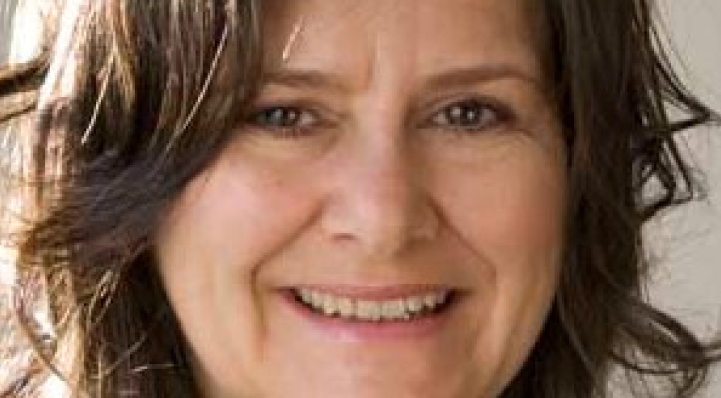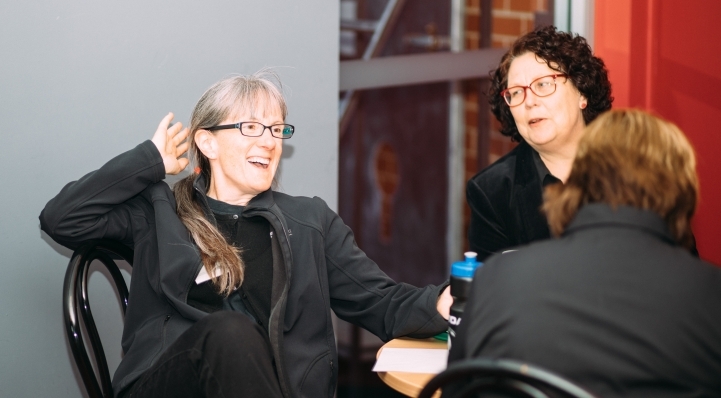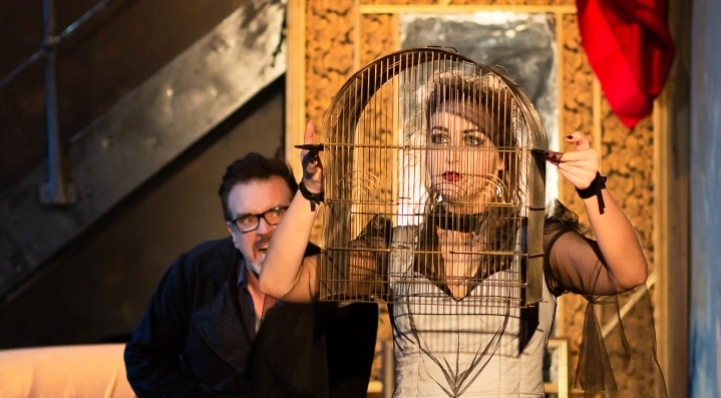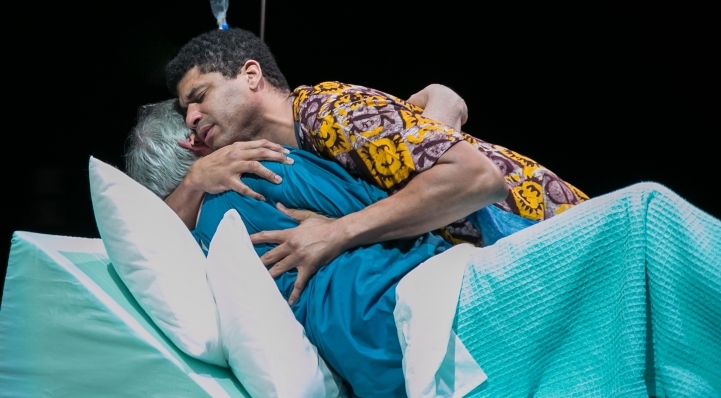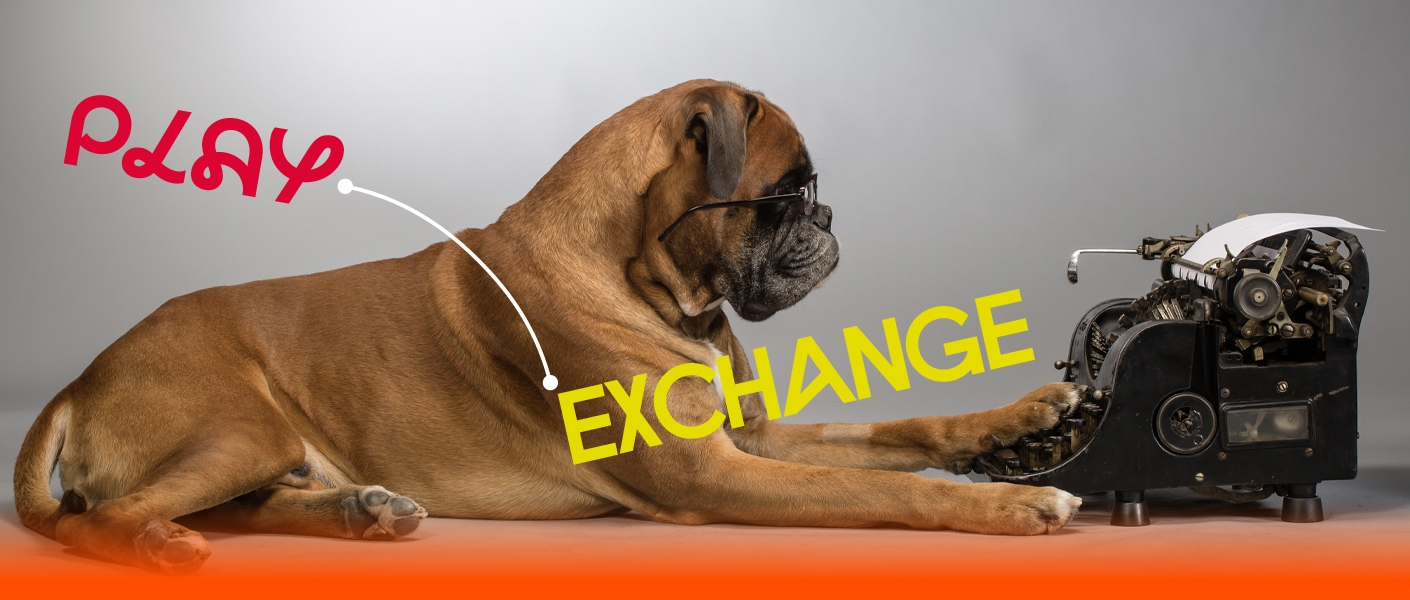
You are here
Emerging Discoveries
Session 6 - Contemporary character driven plays from anywhere in the world
Session 1 | Session 2 | Session 3 | Session 5
Play Exchange
Put forth as suggestions to read on the evening were:
Muff by Patricia Cornelius
Muff, MinusOneSister and SHIT: Three plays – Currency Press
Equus by Peter Shaffer
Equus by Peter Shaffer | 9780743287302 | Booktopia
Yerma by Simon Stone (based on story by Federico Garcia Lorca)
Yerma by Simon Stone | Goodreads
Script Discussion
Innocence by Dea Loher translated by David Tushingham
Some things we found compelling:
Episodic nature of the stories and how they weave together
The poeticism of the language
Humor in the work/resonance to characters
Space to bring yourselves to the work
Some things we found as barriers to the work:
We found it difficult to read this work and stay with the text, although reading passages out loud was easier. Wondering how much of this barrier may have been about difficulty in translation...
The lack of narrative was a barrier for some participants
Believability of characters - we had quite a discussion around motivations of characters and whether we believed them or not; but perhaps this goes further to our point above – that there is space to bring your own interpretation to this work.
Session 5 - Contemporary plays by UK Playwrights
Session 1 | Session 2 | Session 3 | Session 6
Play Exchange
Put forth as suggestions to read on the evening were:
Dinner by Moira Buffini
Fleabag by Phoebe Waller-Bridge
Skin Hunger by Anna Reynolds
Script Discussion
Rules of Living by Sam Holcroft
Some things we found compelling:
Great framework of using character rules for the play (and letting the audience in on this)
Relatable situation – family event
Compelling relationships and characters
Some things we found as barriers to the work:
Whilst the rules created a great starting point for this work, we think they lose their power after a while.
No real subversion or surprise in the work led to it being predicable and not as engaging as it might have been, had the ideas been transformed.
Session 3 - Contemporary plays by US Playwrights
See also Session 1 | Session 2 | Session 5 | Session 6
Play Exchange
Put forth as suggestions to read on the evening were:
Through The Eye of The Needle by Jami Brandli
She Kills Monsters by Qui Nguyen
And playwrights: Lucas Hnath, Annie Baker and David Mamet
Script Discussion
The Cost of Living by Martyna Majok
Some things we found compelling:
The representation of complex and well-drawn characters with disabilities on stage
Jess’s desire for John
The relatable theme of loneliness and the desire for connection
How the play addresses privilege with nuance and complexity
The emotional journey – surprising choices within relationships
Some things we found as barriers to the work:
We weren’t convinced that Annie would ever be left alone in a bath, so this didn’t ring true at first. However, we then mused that perhaps this was a deliberate indictment of the health system in the US and highlighted the differences in education levels between characters.
The writer’s intention is very clear with very specific stage directions, but we’re curious if this prohibits other interpretations of the work and artists/creatives bringing something new to the work.
Session 2 - Contemporary plays by Male UK playwrights
See also Session 1 | Session 3 | Session 5 | Session 6
Play Exchange
It was great to see what everyone has been reading and to swap plays. Discussed on the evening were the following:
Blackwatch by Gregory Burke
Educating Rita by Willy Russell
The Pillowman by Connor McPherson
Peter and Alice by John Logan
Constellations by Nick Payne
Lungs by Duncan McMillian
Attempts on Her Life by Martin Crimp
Pronoun by Evan Placey
Sex With A Stranger by Stefan Golaszewski
Passion Play by Peter Nichols
Script Discussion
Shoot/Get Treasure/ Repeat by Mark Ravenhill is a series of plays originally written to play across each morning of Edinburgh Fringe Festival as "Breakfast with Ravenhill". We discussed the use of language, form, currency, character and themes. We read out loud and focused on The Mother for this discussion.
Some things we found compelling:
- Extremely good example of conflicting objectives for the characters which propelled the work forward
- There is no hesitancy in Ravenhill's treatment of this script. He pushes language and action to extremes – which we found as a very compelling example of how far you can go as a playwright. (For those writers of you needing permission to be hard on your characters this is a great scene to look at).
- Ravenhill's words in the introduction:
There is no definitive way of reading or producing these plays. Of course there never has been a definitive way of reading or producing any play. But sometimes in the past people have spoken as if there were. Hopefully this foolish idea is on its very last legs... Every play I write is normally a reaction against the last one I wrote. Probably to the audience and the reader they seem more like a continuum but to me it’s always an attempt to start again, to do something different... Plays only really exist when you as reader and theatre-maker ‘re-author’ them. These plays were once mine but now you need to make them your own.
Some things we found as barriers to the work:
- This play felt slightly too long and like it could be edited to be tighter (perhaps being written to spec – 20 minutes for one morning at The Fringe speaks to why this is the case).
- The language, action and mother character are very confronting, which was very close to being a barrier to the work; however, reading it out loud we realised these were all very intentional and actually served the story...
- The use of repetition felt too contrived to us and pushed us away from the work (although we did concede this might just work in the playing).
Session 1 - Contemporary plays by female Australian playwrights
See also Session 2 | Session 3 | Session 5 | Session 6
Play Exchange
It was great to see what everyone has been reading and be given the opportunity to swap plays with others. Put forth and swapped on the evening were the following:
Joanna Murray-Smith – Love Child Love Child – Currency Press - 1993
Linda Hassall – Post Office Rose POST OFFICE ROSE | Australian Plays Transform (apt.org.au) - 2003
Kate Mulvaney - The Seed The Seed – Currency Press - 2008
Dianne Stubbings – The Parricide Stray and The Parricide – Currency Press - 2014
Suzie Miller – Prima Facie Prima Facie – Currency Press - 2021
Andrea James & Catherine Ryan – Dogged Dogged – Currency Press - 2021
We had an illuminating discussion around the ways in which a playwright's work evolves when comparing earlier scripts to more recent plays and noted this as a useful exercise moving forward.
Script Discussion
CARESS/ACHE by Suzie Miller. We discussed use of language, form, currency, character and themes.
Some things we found compelling:
- Structure of the work. Woven narratives a useful tool for engagement.
- The motif of touch. We found this theme was very relevant in this time of COVID.
- Gaps and silences and free flow structure of language allowed a lot of space in the text. There were scenes where the written action and silences progressed the story without any text or explanation.
Some things we found as barriers to the work:
- Too much Cliché - threw us out of the story and made it hard to connect
- We wondered if the play would be better served with fewer characters and narratives and more refining/strengthening of the remaining core.
- The storyline of Arezu seems disconnected from the rest of the play and we weren't convinced the characters of Belinda and Cate provided the comic relief they perhaps were intended to have.
